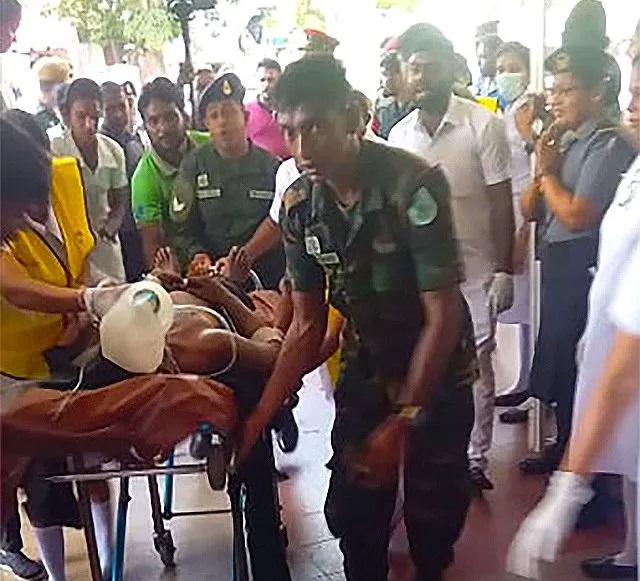SL Navy officer caught by locals in Vadamarachchi East over attempted rape
 |
|
Photographs Tamilwin
|
A Sri Lankan navy officer was caught by locals in Vadamarachchi East after he entered a woman's house in the Kattaikaadu region in an attempted rape during the early hours of Wednesday.
The officer tried to escape after entering when he was seen by the woman's husband, who tried to catch him, Uthayan reports. He was eventually reprimanded after neighbours, who had heard the screams from next door, helped the woman's husband.



